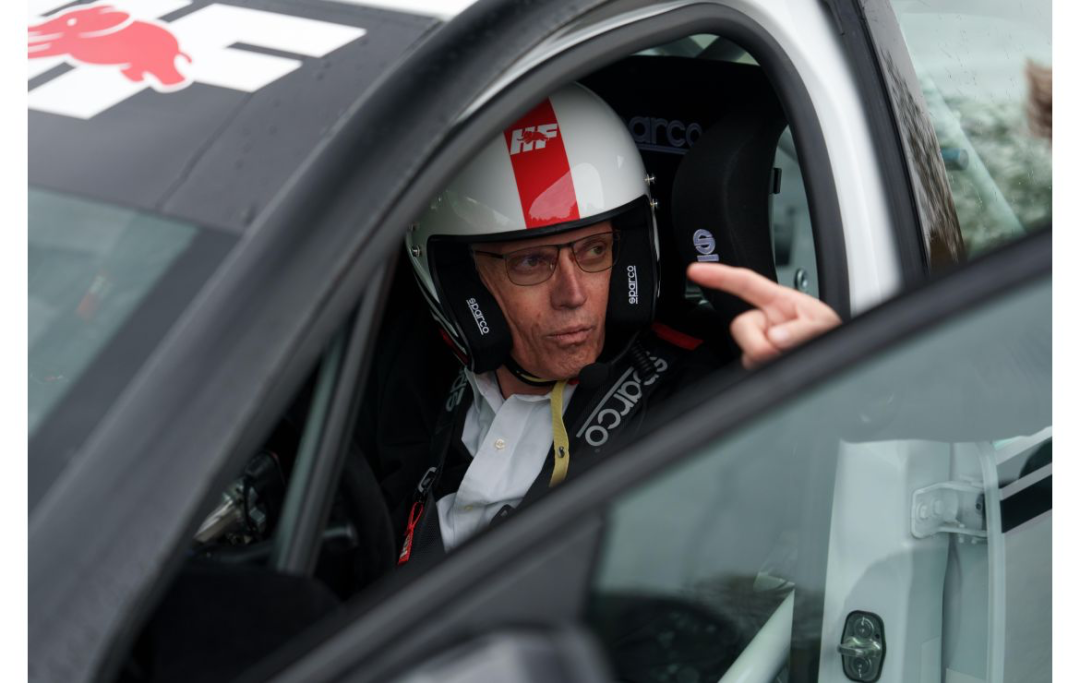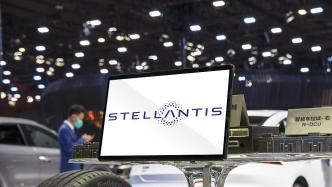
On October 10, the departure date of Carlos Tavares was officially set. The group released an official announcement stating that the CEO will retire at the beginning of 2026, and the election process for the new CEO has already begun, expected to be completed in the fourth quarter of 2025.
Born in 1958, Carlos Tavares is now 66 years old; stepping down at this age is quite natural. However, from various perspectives, the departure of this strong-willed leader seems somewhat "reluctant." The board announced more than a year in advance that he would not be continuing in his position, effectively snuffing out his chances for reappointment.
For Tavares himself, leaving at this age couldn’t possibly be a heartfelt decision. Just this year, amidst the global automotive industry's downturn, he had prominently announced a 56% salary increase for himself, responding to doubts with only a curt “the capable do more.”
However, as 2024 arrived, everything changed abruptly. Lacking the support of performance, Tavares’s arrogance suddenly became "intolerable," prompting many to reevaluate the issues surrounding this star CEO who played a pivotal role in creating Stellantis and the true challenges facing the world's fourth-largest automotive group.
Two Carloses "Dominate" the French Automotive Industry
Many who know Carlos Tavares say that he bears an uncanny similarity to the renowned former CEO of the Renault-Nissan Alliance, Carlos Ghosn. Both hail from Portuguese-speaking countries and even share the same first name (Carlos Tavares's birth name is Carlos Tavares).

However, when it comes to their connection to the automotive world, Tavares has the upper hand. With a childhood dream of becoming a racing driver, he completed his mechanical engineering degree at CentraleSupélec in Paris and joined Renault as a test driver. At that time, Ghosn was still an executive at Michelin.
Subsequently, Tavares was repeatedly promoted within Renault due to his strong expertise, and perhaps feeling satisfied with this similar young person, Ghosn’s arrival smoothed Tavares’s ascent even further. In 2005, Ghosn became CEO of Renault, and Tavares joined the Renault board as Executive Vice President.

Yet, while two similar ambitious individuals might occasionally admire each other, they cannot simultaneously hold the steering wheel. In 2011, once Tavares became the genuine second-in-command of the Renault-Nissan-Mitsubishi Alliance, he began seeking more opportunities to advance.
However, this Portuguese man was well aware that Ghosn, the head of Renault, was like a high-spec version of himself; it was clear he could never attain a higher position under such a figure.
Thus, just two years into being Renault's second-in-command, Tavares found his opportunity. In 2013, the PSA Group, another French company, was in turmoil, prompting the French government to urgently search for a new leader. That August, Tavares seized the moment to publicly declare his intention to lead an automotive group.

Ghosn was furious about this; just two weeks later, Tavares was out the door, leaving the company he had worked for over 30 years, but three months later, he naturally became the new president of PSA. Undoubtedly, Tavares seized a fleeting opportunity.
Prior to Tavares, PSA had hired several leaders from outside the automotive industry, all of whom had ultimately failed. Tavares, however, was different; he knew the automotive field inside out and had unparalleled expertise among automotive presidents. More importantly, he possessed a cost-cutting determination that surpassed even Ghosn's.
In front of the media, the younger Carlos had complained that the older Carlos's high-pressure tactics within the Renault-Nissan Alliance “seriously suffocated the business,” but when he came to Peugeot, he outdid Ghosn, even acknowledging with pride, “My revitalization plan is very simple: complete obedience.”

As Tavares’s power peaked, his reforms became immediately evident. After he took the wheel, Peugeot Group quickly halted its sharp decline, which had been losing €5,000 per minute, and completed 50% of the strategic investment from Dongfeng Motors, with the remaining 50% relying on Tavares's multifaceted cost-cutting and efficiency improvements—both challenging tasks.
On one hand, upon taking over PSA, Tavares’s control over costs became almost obsessive; not only was there not a scrap of paper in his office, but he would also harshly reprimand subordinates seen holding paper. Just as he creatively named himself in Chinese, “Weishi” (meaning "realistic"), became his sole pursuit.

On the other hand, owing to his complex background and extreme pragmatism, Tavares showed no hesitation regarding the introduction of Chinese capital. However, other French executives in management were not as welcoming, particularly Thierry Peugeot, the "orthodox" heir to the Peugeot brand, who consistently opposed what he deemed "contamination" of Peugeot's century-old lineage by Chinese investment.
Thanks to such decisive action, Tavares almost duplicated Ghosn's successful path, turning PSA profitable within just two years; thus, the automotive industry witnessed two impressive "Carlos stories."
Old Tricks Resurrected, Yet Failing to Save Stellantis
As the enterprise teetered on the brink, Tavares's "potent medicine" proved effective and quick-acting. However, the rule of a despot ultimately is not a long-term solution for a modern corporation. Set aside other issues; it is too reliant on the personal capabilities of the ruler.

Although Tavares is a top-notch professional manager, he is not a management genius like Akio Toyoda or Soichiro Honda. His profit-driven and ruthless approach has created excessive risks for both himself and the organization.
First, he saved the Peugeot market in China during a critical period. In the years when Dongfeng Group invested in Peugeot, Tavares and the entire Peugeot group experienced a "honeymoon period" with China. He publicly expressed multiple times the enormous potential of the Chinese market and that the group's strategic focus would shift there, even making special visits to China on several occasions.
In personnel appointments, Tavares held firm against the internal pressures from the "conservatives" and promoted Chinese executive Chen Guozhang, who could not speak French, to the headquarters, giving him the highest position that a Chinese had ever attained in PSA's history.

However, all of Tavares's actions were not out of a sense of gratitude, but purely driven by profit considerations. Beginning in 2015, French brands including Peugeot-Citroën began to see a decline in the Chinese market, with fierce competition from domestic brands and strong German and Japanese rivals. Even though Peugeot made efforts, it ultimately couldn't reverse the trend.
From the figures, in 2015, Peugeot-Citroën's sales in China surpassed 730,000 units, marking the pinnacle for the Peugeot brand, ranking fourth in growth among joint-venture brands. By 2019, however, sales plummeted to just 117,000 units, with each subsequent year further declining.
If other joint-venture brands collapsed under the rolling tide of new energy from domestic brands, Peugeot-Citroën's decline was less related to new energy, as it had nearly succumbed even before the wave arrived.

As the situation in the Chinese market became irretrievable, Tavares’s attitude toward China underwent a 180-degree shift. He publicly stated, “We don’t need to build factories in China; China favors local brands and is unfriendly to foreign brands.” He even went further by continuously urging the European government to restrict Chinese brands from entering the European market, asserting, “This is because foreign brands are also restricted in China.”
Tavares's shift in attitude left the Dongfeng Group, as a shareholder, in a tough spot, nearly eliminating Peugeot-Citroën's chances of making a comeback in China. Nevertheless, it must be acknowledged that Tavares's firm measures continued to play a role in PSA's development in other areas.
In January 2021, the FCA and PSA successfully completed a $52 billion merger, officially founding the Stellantis Group, with Tavares as the first head of this automotive giant with 14 brands.

With more resources at his disposal, Tavares's talents once again came into play; Stellantis improved its scale and influence in international markets, especially in Europe and the U.S., through cost-cutting and efficiency measures. Recently, Stellantis released its 2023 performance report, showing record-high net revenue, net profit, and industrial free cash flow, which became a major basis for Tavares's 56% salary increase.
However, after this brilliance, what Tavares brought to Stellantis was not truly revolutionary technology or models, but essentially the same old path of "cost-cutting and efficiency improvement."

Faced with a much larger group, Tavares can no longer guarantee the company’s "absolute obedience" to him. Long-standing high-pressure policies have not only made him numerous enemies within and outside of the group but, more importantly, have triggered dissatisfaction and resistance over the “minutiae” that sustain such a large enterprise—in Stellantis’s most relied-upon U.S. market, Shawn Fain, president of the UAW (United Auto Workers), warned: “There’s something wrong at Stellantis. If any auto worker performed as poorly as Tavares has, they would be fired.”
In pursuit of a profit-first operational strategy, Tavares adopted the same methods in the U.S., including layoffs and price increases, while expressing disinterest in investing in the U.S. The dealer group also voiced their discontent: “Tavares oversaw the 'rapid degeneration' of the brands under this automaker, urging him to spend more to clear their old stock.”

Correspondingly, Stellantis faced a rapid decline in profits in the first half of this year. Data shows that Stellantis generated a net revenue of €85.02 billion in the first half, roughly equivalent to 670.2 billion yuan, a 14% year-on-year decline; net profit fell to €5.65 billion, about 44.5 billion yuan, down 48% year-on-year.
This profit decline in the first half sparked Tavares's drastic "cost-cutting and efficiency improvement" measures, as he proposed even more stringent layoff and contraction policies, igniting market resistance. This time, Tavares's trump card failed to yield
